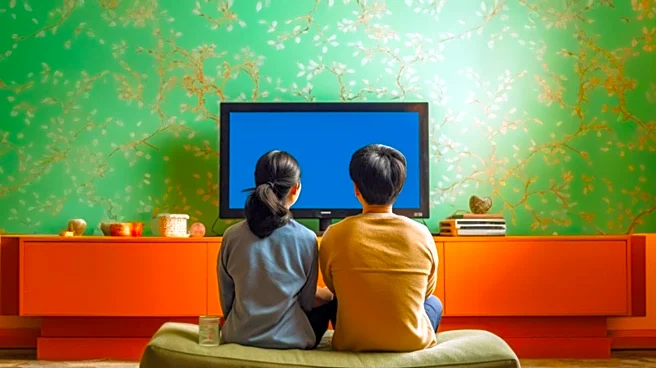What's Happening?
Screen time is increasingly seen as an inherent aspect of modern life, rather than a metric to control. Efforts to limit screen time may offer minor benefits, but the omnipresence of screens suggests that broader societal changes are necessary for significant
impact. Parents are encouraged to model good screen habits to foster healthy relationships with technology among children. Trends like 'analog bags' reflect a growing desire to reclaim time from screens, emphasizing offline activities. Concerns remain about digital tools encouraging harmful behaviors, highlighting the need for better regulation and enforcement of safety guidelines.
Why It's Important?
The pervasive nature of screen time affects various aspects of life, including social interactions, mental health, and productivity. As screens become integral to daily activities, individuals and society must navigate the balance between beneficial and detrimental screen use. The challenge lies in addressing the systemic nature of screen time, which requires collective efforts beyond individual monitoring. This issue impacts industries reliant on digital engagement, such as technology and entertainment, and raises questions about the future of human interaction and cognitive development.
What's Next?
Future efforts may focus on developing guidelines and technologies that promote healthy screen use. Policymakers and educators might explore strategies to integrate screen time management into public health initiatives. Companies could innovate products that encourage balanced screen engagement, while researchers continue to study the long-term effects of screen time on cognitive and social development. The conversation around screen time is likely to evolve as society seeks solutions to mitigate its negative impacts.
Beyond the Headlines
The ethical implications of screen time involve privacy concerns, data security, and the influence of digital media on public opinion. Legal frameworks may need to adapt to address these challenges, ensuring that technology serves the public good without compromising individual rights. Cultural shifts may occur as society reevaluates the role of screens in daily life, potentially leading to new norms around digital consumption and interaction.















